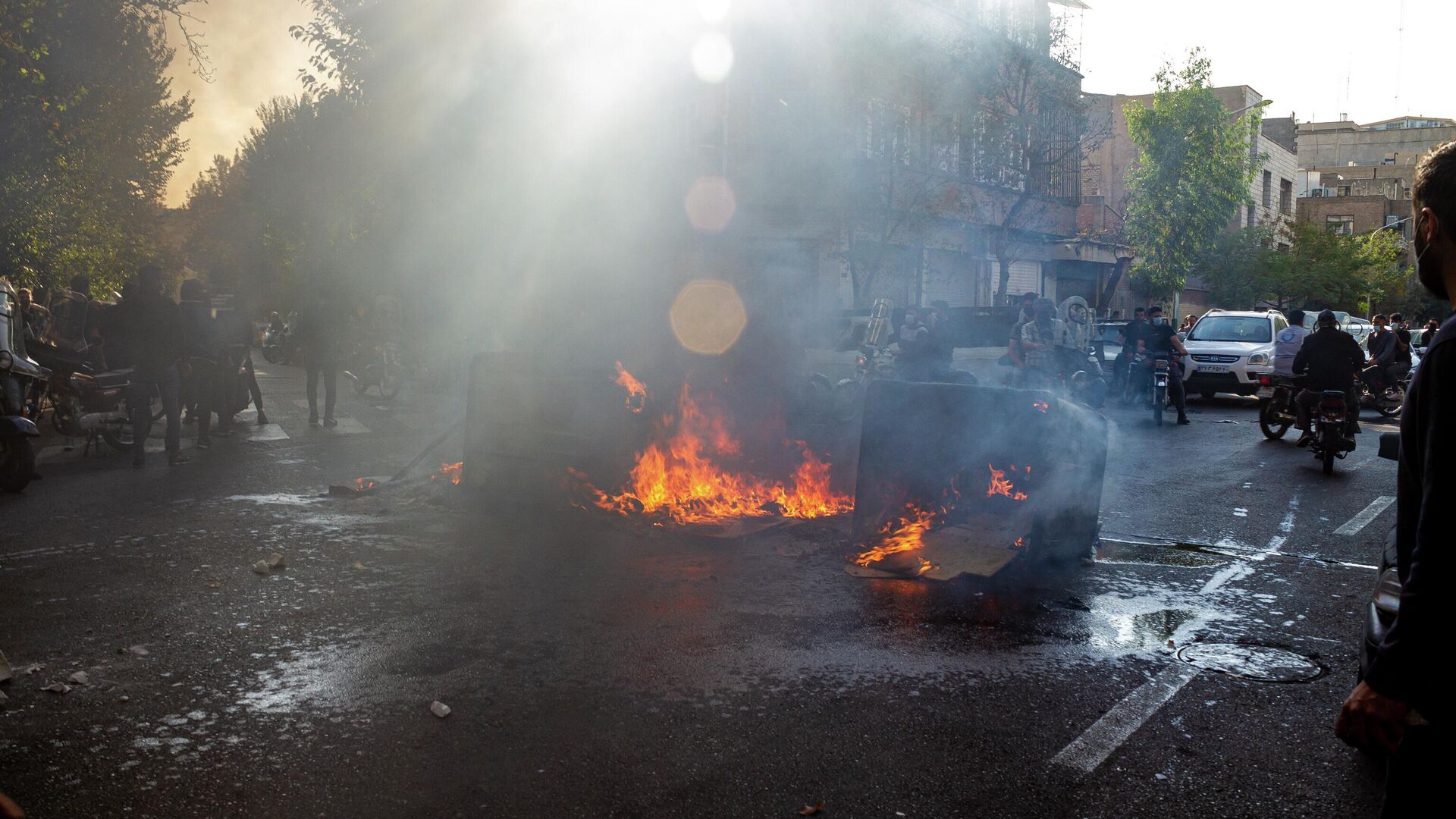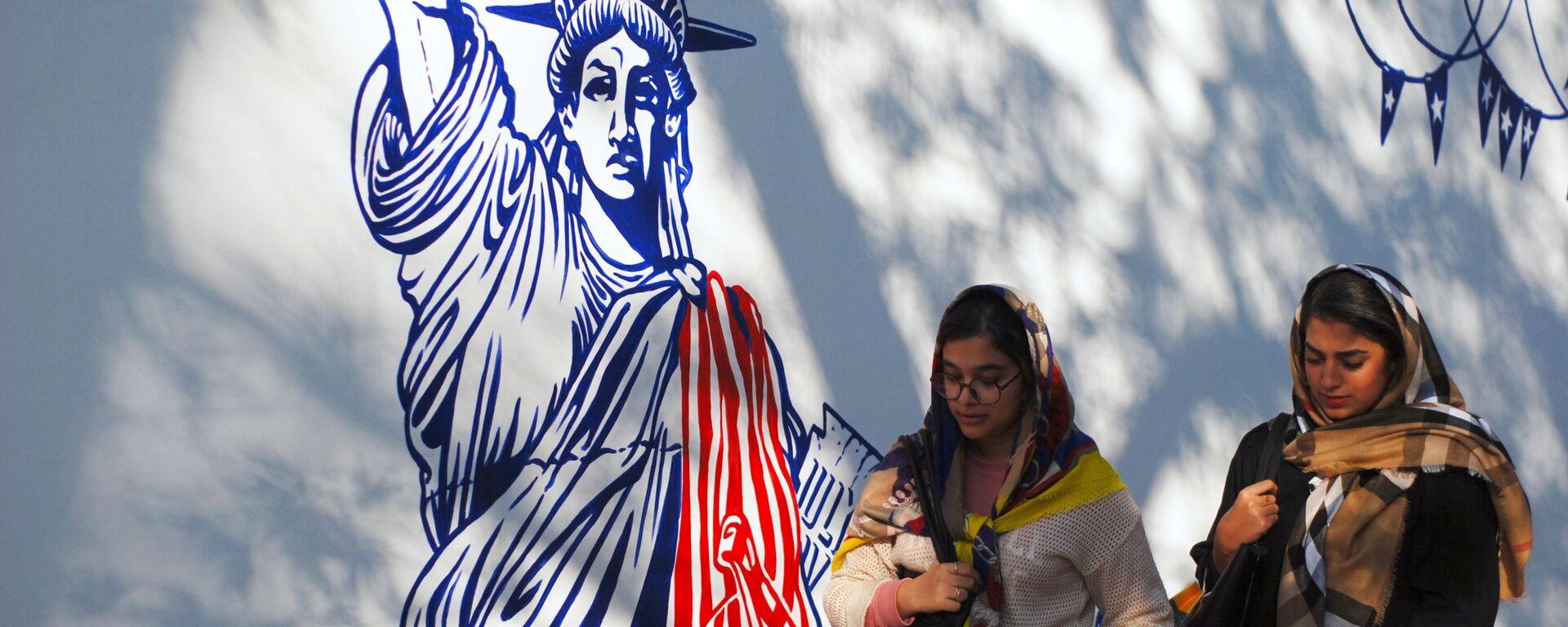Iran Dismisses Western ‘Human Rights’ Complaints Over Protests, Points to West’s History of Violence
19:10 GMT 05.12.2022 (Updated: 19:16 GMT 05.12.2022)

© AP Photo
Subscribe
Iranian authorities confirmed Saturday that over 200 people lost their lives in the wave of protests which has swept across many major cities since September. Last week, Iran slammed a “political” “fact-finding mission” proposed by Western nations at the UN to investigate “human rights abuses” related to Tehran’s handling of the unrest.
Iranian Foreign Ministry spokesman Nasser Kanaani has dismissed attempts by Western countries to present themselves as defenders of human rights in other countries, given their history of violence, both at home and against the Global South.
“Officials of regimes who have coups, conspiracies, interventions and devastating wars causing millions of deaths in their history are now pretending to be defenders of human rights in other countries,” Kanaani tweeted. “Moreover, despite their false gestures of [advocating] human rights, they have not succeeded in hiding their anti-human rights nature.”
The spokesman accompanied the two-part tweet with a screengrab of a report on British Prime Minister Rishi Sunak “giving the police new powers” to clamp down on the “illegal” Just Stop Oil protests as an example of Western hypocrisy.
“Popular protests in Britain, Germany, France, Canada and Australia are bad and deserve to be cracked down on, but riots in countries they are targeting are good and deserve support,” Kanaani quipped.
اعتراضات مردمی در انگلیس، آلمان، فرانسه، کانادا و استرالیا بد و شایسته برخورد شدید اما اغتشاشات در کشورهای مورد هدف آنها خوب و شایسته حمایت است!!
— Nasser Kanaani (@IRIMFA_SPOX) December 4, 2022
سران این رژیمها پس از تقسیم تروریسم به خوب و بد، از اغتشاش و اعتراض نیز تعریف دلخواه خود را ارائه می کنند.
مرگ خوبست اما برای همسایه. pic.twitter.com/qJq6ynxByO
The United States and its allies have spent months attacking Iranian authorities over their efforts to crack down on violent protests which followed the September 16 death of Mahsa Amini. The 22-year-old woman died in a hospital in Tehran after suffering a heart attack and falling into a coma after an argument with a minder at a morality police facility over the alleged improper wearing of a hijab. A day after her death, rumors spread that she had been beaten into a coma by police, with these claims sparking protests in the capital which quickly spread to other major population centers. However, medical records and security camera footage released by the government later showed that Amini did not appear to have suffered any physical mistreatment at the hands of the authorities.
Iran blamed the protests, which began a day after the country signed a memorandum to join the Shanghai Cooperation Organization, on outside forces, including American and Israeli intelligence.
On Saturday, Iran’s top security body confirmed that more than 200 people, including police officers, security forces personnel, civilians killed in terrorist attacks, and “innocent people who fell victim to plots of anti-revolutionary groups,” died in violence over the past two-and-a-half months.
Iran has rejected a proposed UN “fact-finding mission” on its response to the protests. At a press conference last Monday, Nasser Kanaani vowed that there would be “no form of cooperation with this political committee which as been framed as a fact-finding committee.” The proposed UN probe was called for by Germany and Iceland. Kanaani brought a gas mask with him to the podium during last week’s press conference to remind Berlin of the chemical weapons the Federal Republic supplied to Saddam Hussein’s Iraq during the 1980-1988 Iran-Iraq War, and to accentuate the hypocrisy of German criticism of the Iranian government.


